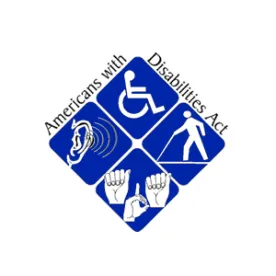A recent trend in suits filed under the Americans with Disabilities Act of 1990 (ADA) and the Rehabilitation Act of 1973 (Rehabilitation Act) includes claims for website accessibility. A number of entities have received complaints on behalf of visually impaired individuals, claiming that the entity’s web presence is not equally accessible to the visually impaired. These claims have been brought under Title III of the ADA and Section 508 of the Rehabilitation Act on the theory that websites are public accommodations. Fueled by success in at least one federal district court case, complaints based on the same theory are being filed in increasing numbers against private entities. Thus, employers must be cognizant of website accessibility issues.
Can Mere Web Presence Render Employers Subject to an ADA Claim?
The U.S. District Court for the Southern District of Florida considered the issue of whether a website constitutes a public accommodation under the ADA in 2017 in Gil v. Winn-Dixie Stores, Inc. That case involved a legally blind customer who shopped at the grocery and pharmacy chain and routinely refilled prescriptions at its brick and mortar locations. Using accommodation software, such as a screen reader, the customer was able to visit various websites, but found that the store’s website was incompatible with the software he used to visit websites. Specifically, the customer alleged that 90 percent of the tabs on the website could not be read by his software and that he was unable to obtain digital coupons, navigate the store locator tool, or refill prescriptions online for in-store pickup and delivery.
While no direct sales were made through the store’s website, it allegedly deterred the customer from enjoying the chain’s goods and services in violation of Title III of the ADA. The crux of the argument was that the website constituted a “public accommodation” within the meaning of Title III, and therefore the violated the ADA by not providing equal access. Thus, the customer alleged, this deprived the visually impaired of the “full and equal enjoyment” of the store’s services.
Sidestepping a question that has divided federal appellate courts—whether the store’s website itself constitutes a “public accommodation”—the court found that the store’s website was “heavily integrated” with, and operated as a gateway to, its physical locations. Ultimately, the court determined that the website denied the customer full and equal enjoyment of the store’s goods and services, issued a mandatory injunction requiring the store to address accessibility issues, and awarded attorneys’ fees to the customer.
What Does This Mean for Employers?
Although this case is not binding on any court (the case is on appeal to the 11th Circuit, but no decision has yet been issued), it has persuasive value across jurisdictions and has provided ammunition to plaintiffs’ attorneys who have been filing numerous Title III lawsuits against companies based on website inaccessibility.
After the Gil opinion, some courts have refined the “public accommodation” standard to apply only where a company’s website is “connected to a physical place in some way.” However, others have declined to require such a connection. Consequently, employers are, in many ways, left wondering what their responsibilities are to employees and the public alike, and whether their web presence renders them subject to claims under Titles I and III of the ADA. Many jobs are performed entirely on computers and through various web or network databases. Many employers almost exclusively require that applications for jobs and internal transfers be submitted through web portals. And it is often the case that benefit information and handbooks are largely available through web portals—which are often managed by third parties.
Employers should proactively evaluate accessibility issues as they relate to points of web access for employees and customers alike. Due to the lack of regulatory guidance provided by the U.S. Department of Justice, the World Wide Web Consortium’s Web Content Accessibility Guidelines are frequently considered the industry standard governing website accessibility standards.
In addition, employers should take steps to ensure third-party service providers are maintaining accessibility standards. In Gil, the court determined that the store had an obligation to require its third-party website manager to comply with accessibility standards. Accordingly, it is important for employers to understand their duties to employees and the public more generally.
Consultation with legal counsel or consultants experienced in ADA accessibility can ensure accessibility issues are identified and addressed so that employees and customers alike enjoy equal access.



 />i
/>i
